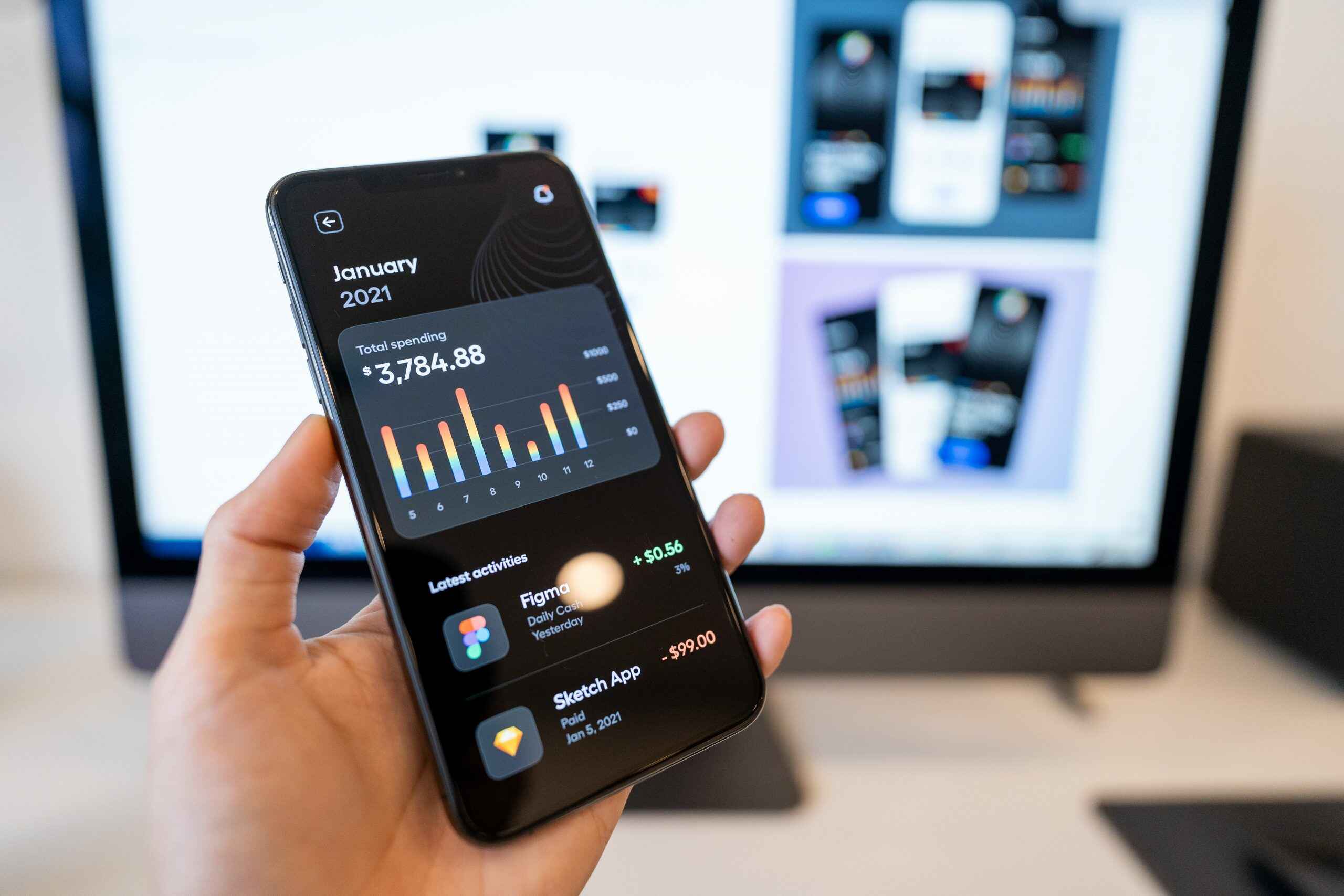Crypto wallet apps have gained massive popularity in recent years, thanks to the rise of digital currencies like Bitcoin and Ethereum. These apps serve as a secure and convenient way for users to store, send, and receive their cryptocurrencies. If you’re considering developing a crypto wallet app, you’re probably wondering about the cost. In this article, we’ll break down the factors that influence the cost and provide you with a comprehensive guide to budgeting for your app.
What is a Crypto Wallet App?
A crypto wallet app is a digital application that securely stores a user’s private and public keys, allowing them to manage their digital assets. These wallets come in various forms, including online wallets, hardware wallets, and mobile wallets. Each type of wallet has its own unique features and advantages.
Online wallets, also known as web wallets, are accessible through a web browser and are typically hosted by a third-party service provider. They offer convenience and ease of use, allowing users to access their digital assets from any device with an internet connection. However, online wallets may be more vulnerable to security breaches due to their reliance on external servers.
On the other hand, hardware wallets provide an extra layer of security by storing the user’s private keys offline. These physical devices are designed to keep the keys isolated from potential online threats, such as malware or hackers. Hardware wallets are considered one of the safest options for storing cryptocurrencies, but they may lack the convenience of online or mobile wallets.
Mobile wallets, as the name suggests, are applications designed for smartphones and tablets. These wallets have gained immense popularity due to their accessibility and ease of use. With a mobile wallet app, users can conveniently manage their digital assets on the go, making transactions and monitoring their crypto holdings with just a few taps on their mobile devices.
Importance of Crypto Wallet Apps
With the growing adoption of cryptocurrencies, the need for secure storage solutions has become paramount. Crypto wallet apps provide users with a convenient way to manage their digital assets, keeping them safe from potential threats such as hacks and thefts.
One of the key advantages of using a cryptowallet app is the ability to store and manage multiple cryptocurrencies in one place. These apps often support a wide range of digital assets, allowing users to diversify their portfolio and easily switch between different cryptocurrencies as needed.
In addition to storage and management, crypto wallet apps also enable users to easily make transactions. With just a few taps on their mobile devices, users can send and receive cryptocurrencies, making payments and conducting business transactions with ease. This eliminates the need for traditional banking intermediaries and reduces transaction fees.
Furthermore, crypto wallet apps provide users with real-time updates on their crypto holdings. Users can monitor the value of their digital assets, track their investment performance, and set alerts for price fluctuations. This allows for better decision-making and helps users stay informed in the volatile world of cryptocurrencies.
It is important to note that while crypto wallet apps offer convenience and security, users must also take necessary precautions to protect their digital assets. This includes using strong passwords, enabling two-factor authentication, and keeping their wallet app and devices up to date with the latest security patches.
In conclusion, crypto wallet apps play a crucial role in the world of cryptocurrencies. They provide users with a secure and convenient way to store, manage, and transact with their digital assets. As the adoption of cryptocurrencies continues to grow, the demand for reliable and user-friendly wallet apps is expected to increase, driving innovation in this space.
Factors Influencing the Cost of Creating a Crypto Wallet App
A crypto wallet app development involves various factors that influence its cost. Understanding these factors is crucial for planning and budgeting your app development project. Let’s explore some of the key factors in detail:
Complexity of the App
The complexity of a crypto wallet app plays a significant role in determining its development cost. The more features and functionalities you want to include, the more time and resources it will require. For instance, if you plan to integrate features like multi-signature authentication, two-factor authentication, or support for multiple cryptocurrencies, the development cost will naturally increase.
Moreover, the complexity of the app also affects the user interface and user experience. Designing an intuitive and user-friendly interface requires additional effort, which can impact the overall development cost.
Platform Choice (iOS, Android, or Both)
Choosing the right platform(s) for your crypto wallet app is another factor that can impact the cost. If you want to develop your app for both iOS and Android platforms, you’ll need to allocate resources for separate development teams. Each platform has its own set of requirements and development processes, which can increase the overall development cost.
Additionally, the choice of platform may also affect the user base and market reach of your app. Analyzing the target audience and market trends can help you make an informed decision regarding platform selection.
Security Measures
Security is of utmost importance when it comes to crypto wallet apps. Implementing robust security measures is crucial to protect users’ sensitive financial information. However, ensuring top-notch security comes with a cost.
Implementing secure key storage, encryption algorithms, and secure authentication protocols requires additional development effort and expertise. The cost of hiring security experts and conducting thorough security audits should be considered while estimating the overall development cost.
Integration with Other Systems
If you plan to integrate your crypto wallet app with other systems or platforms, such as crypto exchanges or payment gateways, it will add to the overall development cost. Integration requires additional development work to ensure seamless interoperability between the app and the external systems.
Furthermore, integrating with external systems may also involve additional costs such as licensing fees or API access fees. It is important to consider these factors while estimating the total cost of your app development project.
In conclusion, creating a crypto wallet app involves various factors that influence its cost. The complexity of the app, platform choice, security measures, and integration with external systems are some of the key factors that can impact the overall development cost. Considering these factors and planning accordingly can help you budget your app development project effectively.
Top 10 Features to Have In Your Crypto Wallet App
1. Multi-Currency Support
- Ensure your wallet supports a wide range of cryptocurrencies. Users appreciate the flexibility to manage various digital assets, from Bitcoin and Ethereum to emerging altcoins.
2. Secure Authentication
- Implement robust authentication methods, including two-factor authentication (2FA) and biometric authentication (e.g., fingerprint or face recognition) to fortify account security.
3. Private Key Management
- Offer secure and user-friendly private key management tools. Simplify the process of storing and recovering private keys, as they are essential for accessing and managing crypto holdings.
4. Transaction Management
- Streamline transaction processes with features like easy fund transfers, peer-to-peer (P2P) trading integrations, and options for setting custom transaction fees.
5. Security Features
- Prioritize security with advanced features such as hardware wallet integration, encryption, and cold storage options. Users should have confidence that their assets are safe from potential threats.
6. QR Code Scanner
- Simplify crypto transactions by including a QR code scanner. Users can quickly scan QR codes for wallet addresses, making transfers more convenient.
7. Price Tracking and Notifications
- Keep users informed about cryptocurrency price movements with real-time tracking. Push notifications for price alerts help users make timely decisions.
8. Backup and Recovery
- Implement robust backup and recovery mechanisms. Users should have a seamless process for backing up wallet data and restoring access in case of lost devices or forgotten passwords.
9. Address Book
- Enable users to create an address book for frequently used wallet addresses. This feature enhances user convenience and reduces the likelihood of errors during transactions.
10. User-Friendly Interface
- Finally, ensure that your app offers an intuitive and user-friendly interface. Easy navigation, clear information presentation, and a well-designed dashboard contribute to a positive user experience.
Integrating these features into your crypto wallet app not only meets the demands of cryptocurrency users in 2023 but also positions your app as a valuable tool in the crypto ecosystem. As the crypto market continues to expand, providing a secure, feature-rich wallet experience will attract and retain users in this competitive space.
Breakdown of the Development Process and Costs
Developing a crypto wallet app involves several key stages that require careful planning, execution, and allocation of resources. In this breakdown, we will explore each stage in detail, shedding light on the importance and costs associated with them.
Design and User Interface
A well-designed and intuitive user interface is crucial for the success of any app, including crypto wallet apps. Allocating sufficient time and resources for UI/UX design will enhance user experience and increase the app’s appeal. A skilled design team will ensure that your app’s interface is not only user-friendly but also aesthetically pleasing.
During the design phase, the team will work closely with you to understand your brand identity and target audience. They will create wireframes, prototypes, and visual designs that align with your vision. The costs associated with this phase include the salaries of designers, software tools, and any additional resources required for graphic design or animation.
Furthermore, user interface testing is essential to ensure that the design meets usability standards and provides a seamless experience for users. Conducting usability tests and gathering feedback from potential users may incur additional costs but will ultimately contribute to the success of your crypto wallet app. The average cost for maintenance and update will vary from $5,000 to $30,000.
Backend Development
The backend of a crypto wallet app development involves building the server-side components that handle user data, transaction processing, and security. This includes developing APIs, databases, and implementing security protocols. The complexity of the backend development will determine the cost of this phase.
During this stage, a team of experienced developers will work on creating a robust and secure infrastructure for your app. They will write code, integrate APIs, and ensure that the backend can handle high volumes of transactions while maintaining data integrity. The costs associated with backend development include the salaries of developers, server infrastructure, cloud services, and any third-party integrations required.
Additionally, security is of utmost importance when dealing with crypto wallets. Implementing encryption, two-factor authentication, and other security measures will add an extra layer of protection to users’ assets. Investing in the expertise of cybersecurity professionals is crucial to safeguarding your app and its users from potential threats. The average cost for maintenance and update will vary from $30,000 to $100,000.
Testing and Debugging
No software development process is complete without thorough testing and debugging. Testing helps identify and fix any issues or bugs in the app, ensuring it functions as intended. Allocating resources for testing and debugging is crucial to deliver a high-quality and reliable crypto wallet app.
During the testing phase, a dedicated team will conduct various types of tests, including functional testing, performance testing, and security testing. They will simulate real-world scenarios, stress-test the app’s capabilities, and identify any vulnerabilities or performance bottlenecks. The costs associated with testing include the salaries of testers, testing tools, and any external services required for load testing or security audits.
Furthermore, debugging is an iterative process that involves identifying and fixing any issues or bugs discovered during testing. This phase requires the expertise of developers who can analyze code, trace errors, and implement necessary fixes. The costs associated with debugging include the salaries of developers, debugging tools, and any additional resources required for code optimization.
By understanding the breakdown of the development process and costs associated with each stage, you can better plan and allocate your resources for the creation of a successful crypto wallet app. Remember, investing in design, backend development, testing, and debugging is essential to deliver a high-quality and reliable app that meets the needs of your users. The average cost for maintenance and update will vary from $5,000 to $30,000.
Regular Updates
Crypto wallet apps, like all software, require regular updates to remain relevant and secure. These updates serve multiple purposes. Firstly, they introduce new features that enhance the user experience and keep your app competitive. Features such as multi-currency support, advanced transaction history analysis, or integration with DeFi platforms can attract new users and keep existing ones engaged. Secondly, updates ensure compatibility with the latest operating system versions, allowing users to benefit from the latest technologies and security enhancements.
Bug Fixes and Security Patches
In the ever-evolving world of cryptocurrencies, staying vigilant against potential vulnerabilities is paramount. Swiftly addressing bugs and security vulnerabilities is crucial to protect users’ funds and maintain your app’s reputation. Proactively conducting code audits and vulnerability assessments helps identify weaknesses in your app’s architecture. Collaborating with cybersecurity experts and staying informed about emerging threats ensures that your app can effectively defend against evolving risks. Users are more likely to trust and choose a wallet app known for its robust security measures and timely bug fixes.
Customer Support
Effective customer support is essential for a successful crypto wallet app. Allocating resources for customer support ensures that users receive assistance promptly when facing issues or seeking guidance. Responsiveness is key, as users may encounter challenges like transaction failures or account recovery. Offering multiple communication channels, such as live chat, email, and phone support, caters to diverse user preferences. This multi-channel approach enhances user satisfaction and retention. Moreover, customer support provides valuable insights for app improvement by actively listening to user feedback and analyzing support requests.
Investing in customer support not only helps resolve user issues but also provides valuable insights for improving your app. By actively listening to user feedback and analyzing support requests, you can identify patterns and areas for improvement, allowing you to continuously enhance your app’s functionality and user experience.
Maintenance and Update Costs
In conclusion, the journey of creating a successful crypto wallet app doesn’t end with its initial development. To ensure its continued success and user satisfaction, ongoing maintenance and updates are indispensable. Regular updates keep your app competitive by introducing new features and maintaining compatibility with the latest technologies. Swift bug fixes and security patches protect user assets and preserve your app’s reputation in the ever-evolving crypto landscape. Additionally, investing in responsive customer support not only resolves user issues promptly but also provides valuable insights for app improvement. Understanding and budgeting for these maintenance and update costs is essential to deliver a high-quality and reliable crypto wallet app that meets the dynamic needs of your users. The average cost for maintenance and update will vary from $10,000 to $50,000.
The average cost to develop a crypto wallet app on the blockchain is around $106,000 for a simple crypto wallet and around $510,000 for one with extra/complex features.
| Cost Component | Estimated Cost Range |
|---|---|
| Development | $30,000 – $150,000 |
| Design | $5,000 – $30,000 |
| Security | $10,000 – $50,000 |
| Wallet Integration | $10,000 – $50,000 |
| Transaction Management | $10,000 – $50,000 |
| Blockchain Integration | $10,000 – $50,000 |
| KYC/AML Compliance | $5,000 – $30,000 |
| Testing | $5,000 – $30,000 |
| Deployment | $1,000 – $10,000 |
| Maintenance and Support | $10,000 – $50,000 |
| Marketing and Promotion | $5,000 – $30,000 |
| Contingency | $5,000 – $30,000 |
| Total | $106,000 – $510,000 |
Cost Comparison: Building In-House vs Hiring an Agency
When it comes to developing a crypto app, one of the key decisions you need to make is whether to build it in-house or hire an agency. Both options have their own set of pros and cons, and understanding them can help you make an informed choice.
Pros and Cons of Building In-House
-
Greater Control: Building in-house provides greater control over the development process, allowing alignment with specific requirements.
-
Ownership and Dedication: In-house teams foster a sense of ownership and dedication towards the project.
-
Resource Allocation: Building in-house requires resources and time for hiring, training, and managing the development team.
-
Skill Assessment: Careful assessment of the team’s skills and experience in crypto app development is necessary.
-
Time-Consuming: Building in-house can be time-consuming due to the recruitment and training processes.
-
Limited Perspective: May limit access to the latest industry technologies and trends compared to software development agencies.
Pros and Cons of Hiring an Agency
-
Expertise and Experience: Agencies, like WeSoftYou, offer expertise and experience in crypto app development.
-
Time Savings: Hiring an agency can save time and provide access to a larger talent pool.
-
Established Processes: Agencies have well-defined development processes for efficient project management and timely delivery.
-
Access to Technologies: Agencies often have access to cutting-edge technologies and tools for a competitive edge.
-
Additional Costs: Hiring an agency may entail additional costs compared to building in-house.
-
Budget Consideration: Budget considerations are crucial, and the return on investment from an agency should be evaluated.
-
Agency Selection: Research and selecting a reputable agency with a proven track record is essential for success.
In conclusion, the decision to build in-house or hire an agency depends on factors such as budget, timeline, and available expertise. Weighing the pros and cons of each option is vital to make a decision aligned with specific needs and goals.
Ways to Reduce the Cost of Making a Crypto Wallet App
Using Open Source Libraries
Open source libraries and frameworks can significantly reduce development time and costs. These libraries provide pre-built functions and modules that can be easily integrated into your app, saving you from reinventing the wheel. However, it is crucial to ensure that the libraries you use are secure and well-maintained.
Prioritizing Essential Features
Identify the core features that are essential for your crypto wallet app’s functionality and prioritize their development. By focusing on essential features first, you can release an MVP (Minimum Viable Product) that meets the basic user requirements and gather user feedback early on. This approach can help reduce development costs and allow for iterative improvements based on user feedback.
Outsourcing to Lower-Cost Regions
Consider outsourcing certain development tasks to lower-cost regions, such as Eastern Europe or Asia. WeSoftYou, as a software development company with a proven track record, has a global presence and can offer cost-effective solutions without compromising quality. Outsourcing can help minimize development costs, especially for non-core tasks like UI/UX design or QA testing.
Conclusion: Is Creating a Crypto Wallet App Worth the Investment?
A crypto wallet app development is undoubtedly an investment, both in terms of time and resources. However, with the growing popularity of cryptocurrencies, the need for secure and user-friendly wallet apps is on the rise. We at WeSoftYou understand the importance of creating robust and reliable software solutions that provide an exceptional user experience. With our expertise in software development, we can help you build a highly functional and user-centric crypto wallet app that stands out in the market.
Whether you choose to build your app in-house or hire an agency, it’s crucial to carefully evaluate all the factors that influence the cost and functionality of your app. By considering the complexity of the app, platform choice, security measures, integration requirements, and ongoing maintenance costs, you can make an informed decision and ensure a successful development process.
If you have any questions or need assistance with creating your crypto wallet app, feel free to contact us at WeSoftYou for a free consultation or project estimation. Our team of experienced professionals is ready to guide you through the process and help you achieve your app development goals.
Read how does it cost to Crypto trading app.
FAQ
The time required to create a crypto wallet app can vary depending on its complexity, features, and platform(s) of choice. It typically takes several months to develop a fully-functional and secure app. However, building an MVP (Minimum Viable Product) with essential features can be accomplished in a shorter timeframe.
Ensuring the security of your crypto wallet app starts with implementing robust security measures such as secure key storage, encryption, and secure authentication protocols. Regularly updating your app with the latest security patches and conducting thorough security audits are also essential. It is highly recommended to work with experienced software development professionals like WeSoftYou who have expertise in building secure applications.
Yes, integrating your crypto wallet app with third-party platforms such as crypto exchanges or payment gateways is possible. However, it requires additional development work to ensure seamless interoperability between your app and the external systems. WeSoftYou can assist you in integrating your app with various platforms securely and efficiently.
Absolutely! Adding support for multiple cryptocurrencies in your app is a common requirement. Our team at WeSoftYou has experience in creating crypto wallet apps that support various digital currencies. We can help you achieve this feature through careful planning and implementation.






















